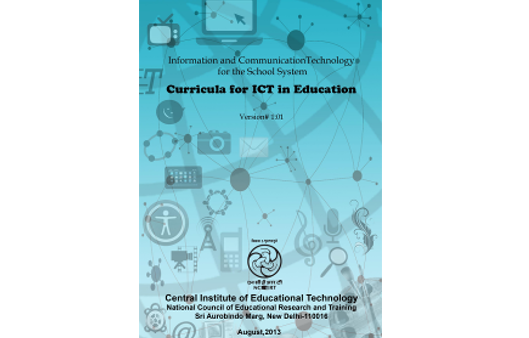Ranjani Ranganathan was a member of the core group for the design of the National ICT curriculum, 2013 of Central Institute of Education Technology (CIET), NCERT. The National ICT curriculum has been based on the aspirations and guidelines set in the National ICT Policy which focuses on building the skills of computing, creating and collaborating through safe, ethical, legal means of using ICT. Ability to handle ICT environment, creating original content, sharing and learning and focusing on educational and learning processes are the key principles of this curriculum, rather than focus merely on learning specific applications.
The curriculum has been designed keeping in mind the various possibilities of creative expression possible through ICT applications and platforms available today and also seeks to build a mindset that will explore and such applications on an ongoing basis. The curriculum does not take a conventional approach to building digital literacy on specific applications but rather emphasizes a thematic, project based approach to ICT learning. Such an approach will also enable integration of ICT with multiple school subjects. This is why no specific software applications are focused on in the teaching, instead, the pedagogical processes that are sought to be learnt are discussed.
Ranjani contributed to the conceptual design of the curriculum, as well as its content. Subsequently, ITfC has worked with the Telangana Department of School Education to develop the ICT syllabus and textbook for high school and higher primary school students, and the corresponding teacher handbook, based on the National ICT curriculum. ITfC has also developed the “Technology integrated learning” course for B.Ed. students and faculty, at Vijaya Teachers College, Bengaluru, based on the National ICT Curriculum.

